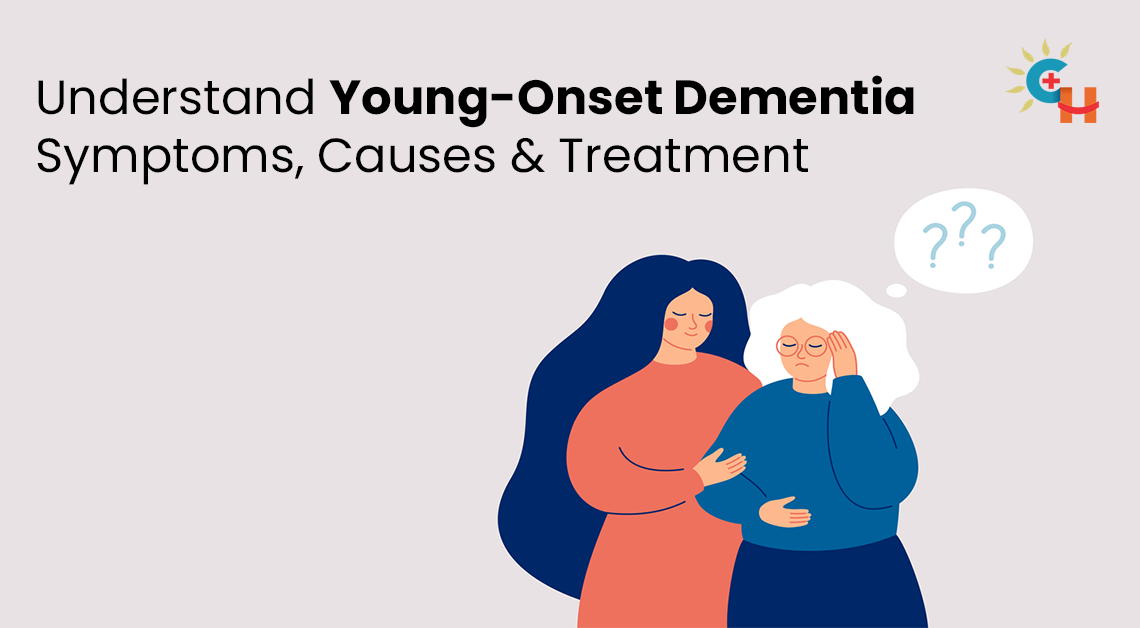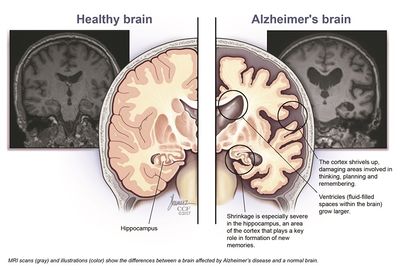A Caregiver's Toolkit for Managing Early Onset Dementia at Home
A Caregiver's Toolkit for Managing Early Onset Dementia at Home
Blog Article
The Relevance of Early Discovery and Diagnosis in Dementia Cases
When it pertains to dementia, identifying the signs early can make a substantial difference. You may wonder exactly how prompt interventions can transform the training course of the condition. Early detection not just opens up therapy options however likewise boosts the lifestyle for people and their families. Comprehending the subtleties of dementia can aid you identify signs and symptoms sooner. What should you know regarding the steps to take when a diagnosis is made?
Understanding Dementia: Kinds and Signs And Symptoms

If you see these indications in yourself or a loved one, don't hesitate to look for help. Early acknowledgment of dementia signs and symptoms can greatly boost the general management of the condition, making it vital to stay educated.
The Impact of Very Early Diagnosis on Therapy Choices
Acknowledging the signs of mental deterioration early on can considerably influence the therapy choices readily available. When you look for a diagnosis quickly, you open up the door to an array of treatments that can reduce the condition's progression.
In addition, very early diagnosis allows you to explore non-pharmaceutical methods, such as cognitive treatments and lifestyle changes, that can boost cognitive feature. This aggressive approach not only encourages you however likewise assists in handling prospective existing together conditions.
Just How Very Early Discovery Can Enhance Top Quality of Life
Very early discovery of mental deterioration not just opens up treatment options yet likewise considerably improves your quality of life. When you identify signs and symptoms early, you can begin to handle them successfully, enabling you to maintain a feeling of self-reliance and control over your day-to-day activities. Early diagnosis suggests you can access treatments and lifestyle modifications tailored to your needs, aiding you manage difficulties in a much more organized method.
Additionally, recognizing your problem equips you to make informed choices about your future. You can prepare for the changes ahead, making certain that your personal objectives and preferences are prioritized. This proactive approach promotes a feeling of security, reducing anxiety for both you and your liked ones.
In addition, participating in very early interventions might boost your cognitive feature and emotional wellness, permitting you to delight in significant connections and experiences. Simply put, very early discovery isn't just regarding taking care of symptoms; it has to do with improving your life.
The Role of Family and Caregivers in Early Recognition

By sharing your problems, you help start very early evaluations, which can lead to timely diagnosis and treatment. Furthermore, your support can encourage enjoyed ones to seek assistance, minimizing preconception and anxiety linked with mental deterioration.
Additionally, keeping open lines of interaction within the family promotes an encouraging setting. Early Onset Dementia. Your proactive participation not just help in recognizing the concern but likewise assists in preparing for future treatment, making certain that your loved one gets the very best feasible assistance as their demands advance
Usual Misunderstandings Concerning Dementia
Family members and caretakers commonly encounter obstacles not simply in determining indications of mental deterioration yet additionally in going across the misconceptions bordering the condition. One typical misconception is that mental deterioration just affects the elderly. While age is a significant risk element, younger individuals can also develop mental deterioration. An additional myth is that dementia is a normal component of aging. It is very important to acknowledge that while memory loss can accompany age, it's not an unpreventable end result. Some individuals believe mental deterioration only affects memory, but it can also impact mood, behavior, and thinking. Furthermore, many think that as soon as identified, absolutely nothing can be done. Actually, early intervention can cause better monitoring of symptoms. Some think that all types of dementia are the very same. Each type, such as Alzheimer's or vascular mental deterioration, has distinct attributes and requires various approaches to care. Recognizing these mistaken beliefs is important for effective support.
Tools and Analyses for Very Early Detection
When it involves very early discovery of mental deterioration, understanding cognitive assessments and testing tools is crucial. These devices can assist you identify potential issues before they escalate. By familiarizing on your own with these evaluations, you can play an active function in checking cognitive health.
Cognitive Analyses Introduction
Cognitive analyses play a crucial duty in the very early discovery of dementia, as they help determine this content subtle adjustments in memory, assuming, and reasoning abilities. These evaluations often consist of a collection of standardized tests that assess various cognitive features. By involving in these analyses, you can acquire valuable understandings into your cognitive wellness. Typical evaluations might entail jobs associated with attention, language, problem-solving, and recall. They're generally provided by healthcare professionals trained to analyze the results precisely. Early identification via these tools can cause timely interventions, improving outcomes and lifestyle. If you notice any kind of cognitive modifications, seeking these evaluations can be a proactive action towards understanding and managing your mind health and wellness efficiently.
Screening Tools Application
Making use of efficient screening tools is vital for the early detection of mental deterioration, as they offer an organized technique to examining cognitive health and wellness. Usual evaluations, like the Mini-Mental State Exam (MMSE) or the Montreal Cognitive Evaluation (MoCA), help determine memory deficiencies and other cognitive impairments. Bear in mind, very early detection can substantially affect therapy choices and high quality of life, so don't ignore the power of aggressive testing.
Steps to Take After a Diagnosis: Planning for the Future
After getting a mental deterioration medical diagnosis, it's vital to start intending for the future. You'll wish to develop care strategies that fit your demands while likewise addressing economic and legal preparations. Taking these steps early can assist ensure you and your loved ones really feel extra safe and secure moving on.
Developing Treatment Plans

Economic and legal Preparations
As you browse your care strategy, it's important to consider the legal and monetary facets of coping with mental deterioration. Begin by marking a power of attorney to manage your financial decisions if you're not able to do so. This assures your dreams are valued and can relieve the concern on your liked ones. Next, take into consideration developing a living will certainly to describe your medical care choices. Testimonial your insurance plans and recognize what's covered, specifically lasting treatment choices. It's additionally important to seek advice from an economic coordinator familiar with dementia-related problems. They can aid you handle your possessions and prepare for future expenses. Taking these proactive steps can offer comfort and ensure pop over to this site your requirements are fulfilled as your problem proceeds.
Frequently Asked Questions
What Are the Danger Elements for Creating Dementia?
You might encounter higher threats for developing dementia if you have a family background, cardiovascular concerns, diabetic issues, smoking practices, or low education and learning levels. Remaining energetic mentally and literally can assist lower these risks considerably.
Can Way Of Life Modifications Delay or avoid Mental deterioration?
Yes, making way of living adjustments can assist avoid or delay dementia. By remaining energetic, consuming a balanced diet plan, involving in social activities, and challenging your brain, you're enhancing your cognitive health and decreasing threat variables.
How Does Mental Deterioration Differ From Regular Aging?
Mental deterioration involves cognitive decrease that conflicts with every day life, while regular aging normally does not (Early Onset Dementia). You could notice memory lapses as you age, but dementia symptoms, like complication and problem with interaction, are a lot more extreme and turbulent
Are There Any Kind Of Support System for Mental Deterioration Caregivers?
Yes, there are support groups for dementia caretakers. You can locate on-line or regional groups through organizations like the Alzheimer's Association. Linking with others in similar situations can provide important emotional support and useful suggestions.
What Legal Files Should I Prepare After a Dementia Medical Diagnosis?
After a dementia diagnosis, you should prepare vital lawful records like a power of attorney, medical care proxy, and living will. These assist ensure your dreams are appreciated and offer advice for future clinical and monetary decisions.
The Significance of Early Discovery and Diagnosis in Dementia Situations
Alzheimer's illness is the most typical form, yet you'll additionally come across vascular mental deterioration, Lewy body mental deterioration, and frontotemporal mental deterioration.When it comes to early discovery of dementia, understanding cognitive assessments and testing tools is important.Cognitive analyses play a vital function in the early discovery of dementia, as they aid identify you could look here refined adjustments in memory, believing, and thinking skills.Making use of reliable screening devices is vital for the early detection of mental deterioration, as they supply a structured approach to reviewing cognitive health and wellness.
Report this page